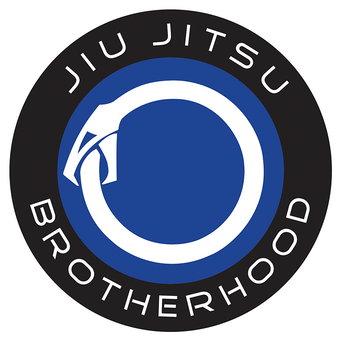This article by Roger Gracie Jiu-Jitsu Black Belt Nicolas Gregoriades was originally published in UK edition of Martial Arts Illustrated several years ago and has been republished with their permission.
Despite the fact that martial arts were initially devised as tools for warfare, in their current evolution they have superseded their original purpose and become agents for cooperation and brotherhood. After his fights, Genki Sudo, one of the best fighters of the early MMA generation used to hold out a banner reading “WE ARE ALL ONE”. He advocated the primary tenet of eastern mysticism - that everyone and everything is connected on an intrinsic level. I believe that Jiu-Jitsu and martial arts can change the world and that they will do it by fostering awareness of this interconnection.
I have seen many examples of this awareness during my own journey into the martial arts.
Fraternalism
Several years ago, when I had first arrived in London, I met one of my best friends for the first time. I am a white South African of Greek descent. He is a black Frenchman of West Indian extraction, whose great-grandparents were affected by the slave trade. On the surface, we couldn’t be more different. When I was introduced to Antony at the Roger Gracie Academy in 2004, he spoke little English and I spoke even less French. But we both understood jiu-jitsu. It dissolved any barriers that there might have been between us. It was through the art that our friendship was born. Today, I consider him my brother, someone with whom I would trust my own life.
At the academy where I teach I roll with people from countries including Poland, France, Canada, Croatia, Japan, Morocco and countless others. Admittedly, London is a very cosmopolitan part of the world, but I have not experienced any other institution here or anywhere else that affords the same diversity of nationalities, professions and cultures as the dojo. Millionaire bankers spar with cleaners. Grappling world champions train with school teachers. Muslims learn alongside Christians. On the mat, all stereotypes and categories fall away, and in this process, it becomes a catalyst for fellowship and camaraderie.
Brazilian Jiu-Jitsu is a way of life that connects people. Jiu-jitsu initially spread from Japan to Brazil and now continues to propagate to the farthest reaches of the globe. It’s a reflection of the increasingly global, interconnected nature of our world. Personally, I know that I can go almost anywhere on earth, be it Tokyo or Buenos Aires, and all I need to do is find the local jiu-jitsu academy. There I will almost certainly find a warm reception and a new group of friends. It has been my experience that almost all martial artists feel the same way.
The jiu-jitsoka ultimately realizes that the concept of 'your country' and 'my country' is outmoded, as is the idea of 'me' versus 'you'. Your training partners and tournament opponents are not people who are in competition with you, they are individuals who are helping you to experience life and learn about yourself.
Empathy and Humility
Through Jiu-jitsu I have come to understand that I am ultimately no different from anyone else. No better and no worse. Discrepancies in size, strength and skill level, and the dualistic concepts like winning and losing feed the illusion of separation. Some people will always eclipse you in ability, and you will most certainly surpass others. But beneath the shell of the physical, the interconnected spirit is pervasive, and it is on this plane where we are all similar. Jiu-Jitsu and the other more physically intensive martial arts can help us understand this because they harshly expose the limitations, and ultimately, the mortality of the physical body.
On the mat, we have all faced our own weakness and been surprised by our strengths. The human being goes through a gamut of physical abilities from the cradle to the grave. The journey of a martial artist parallels this. Like an infant, the beginning student helpless and with very little awareness. En route to adulthood, the child's body grows and he develops his consciousness and strength. Similarly, through experience and training, the fledgeling martial artist gains skills and ability. Finally, in old age, both undergo an inevitable decline in capacity and form.
In a microcosmic and contracted expression of human life, the martial artist experiences his vulnerabilities and capabilities every time he steps on the tatami. These are often confronted in its most visceral and primal state. The most talented and strongest are humbled by superior opponents or old age. The weakest and most timid surprise themselves with acts of courage. When you share these experiences with your training partners, an empathetic bond is formed between yourself and your fellow man. Through jiu-jitsu, we can come to realize that we are all one.
So the next time you are at your academy, give the same respect to the first-day beginner as to the black-belt master. Remember that, like the world itself, they are both mirrors to your own soul.










0 comments